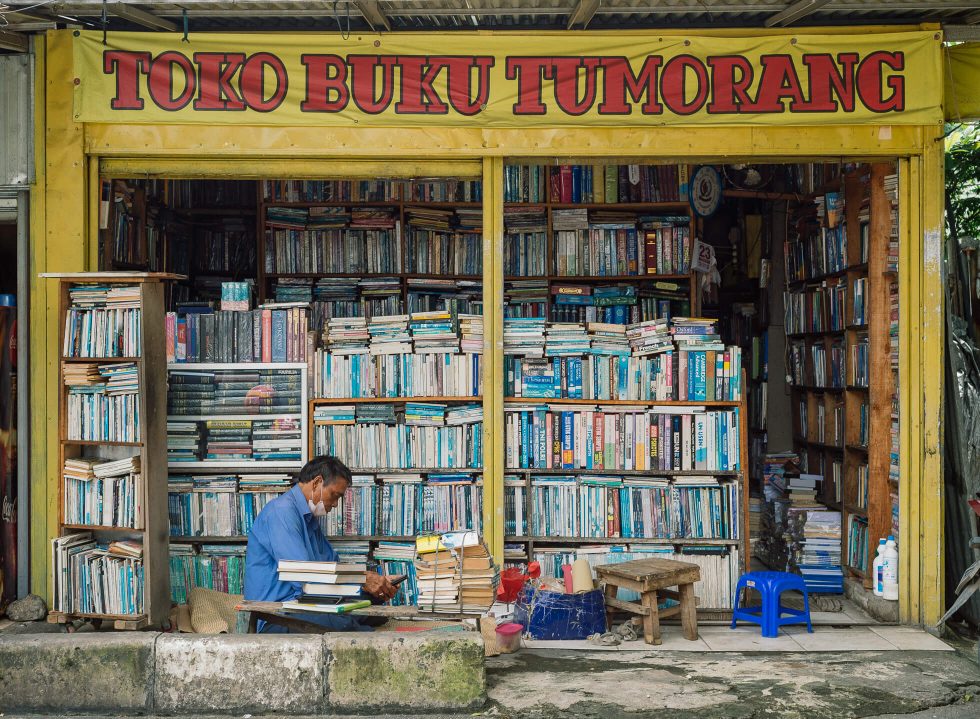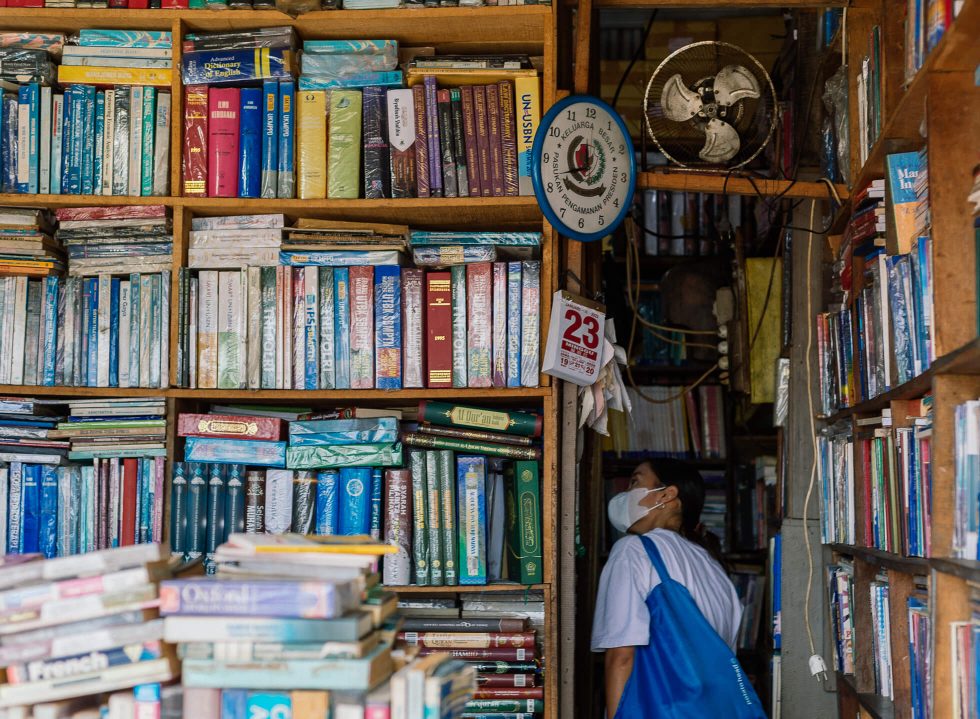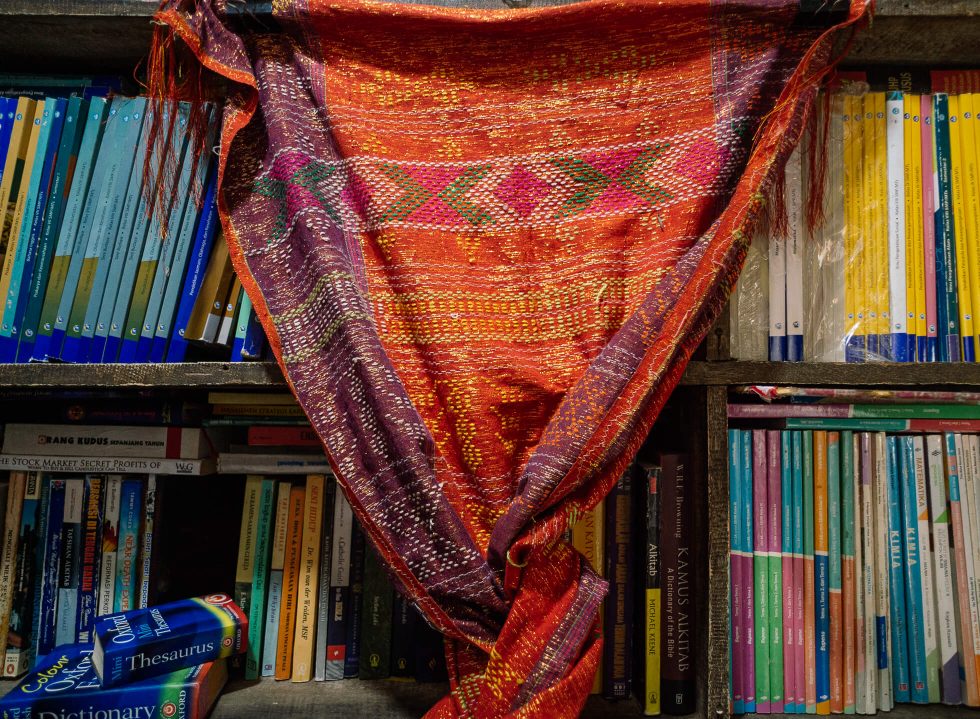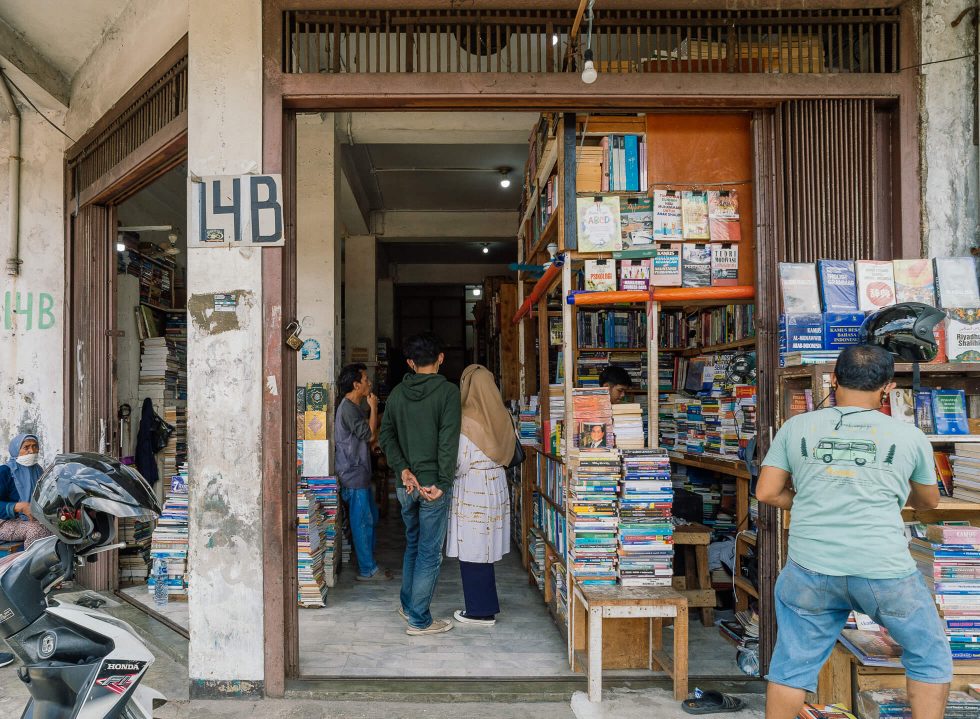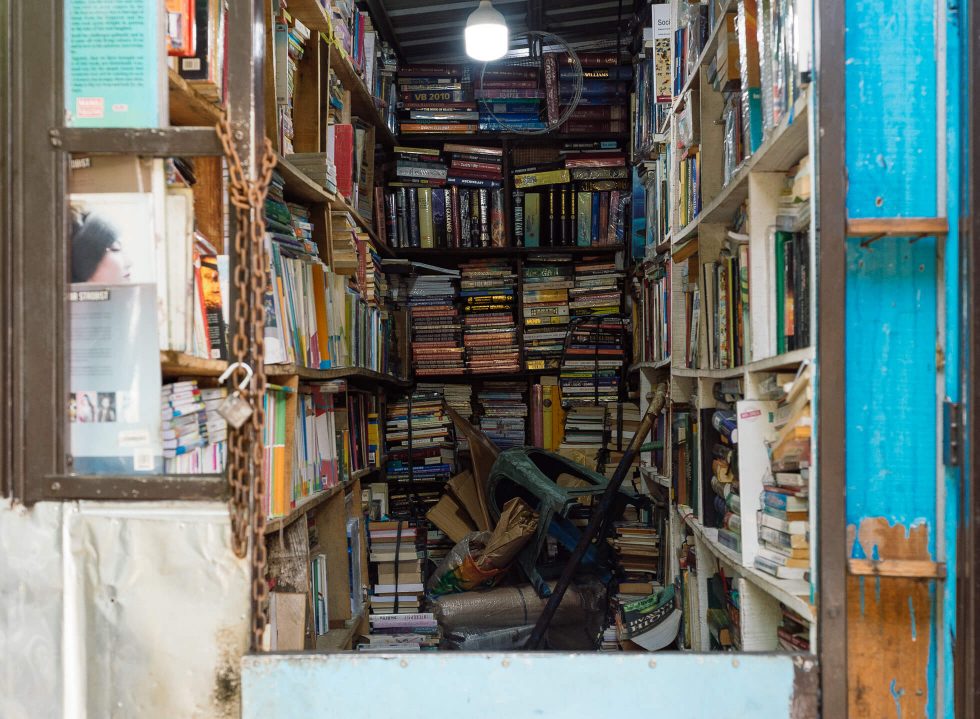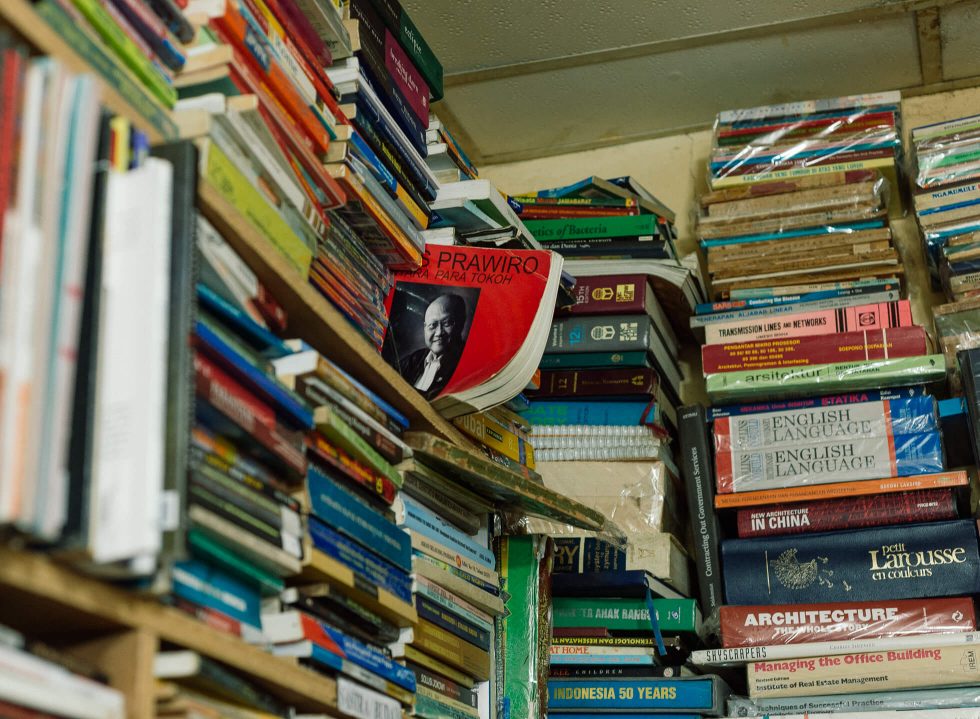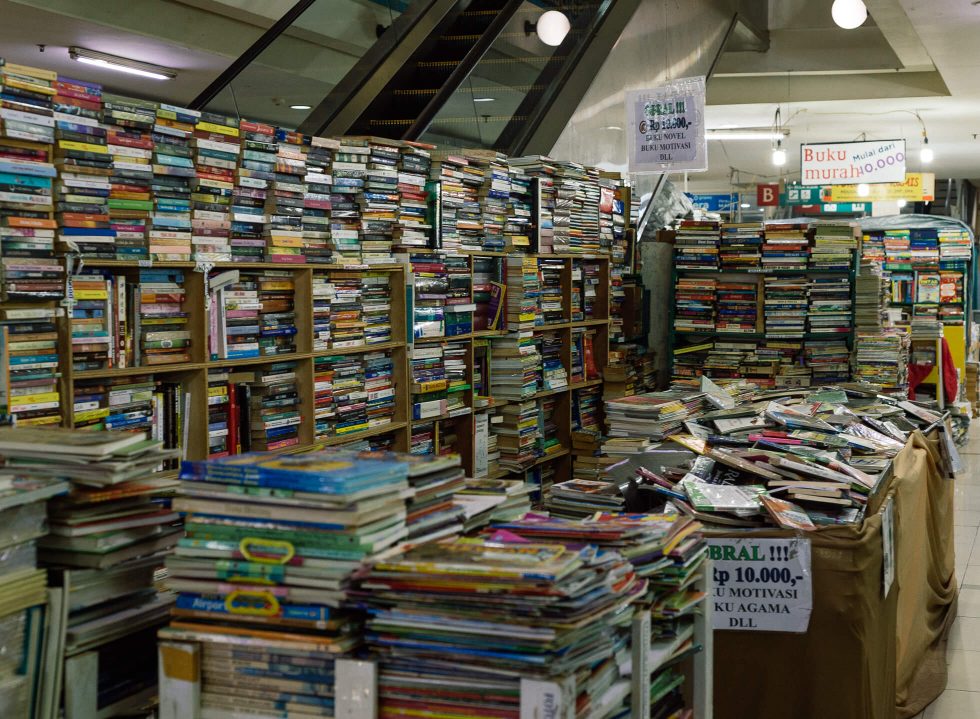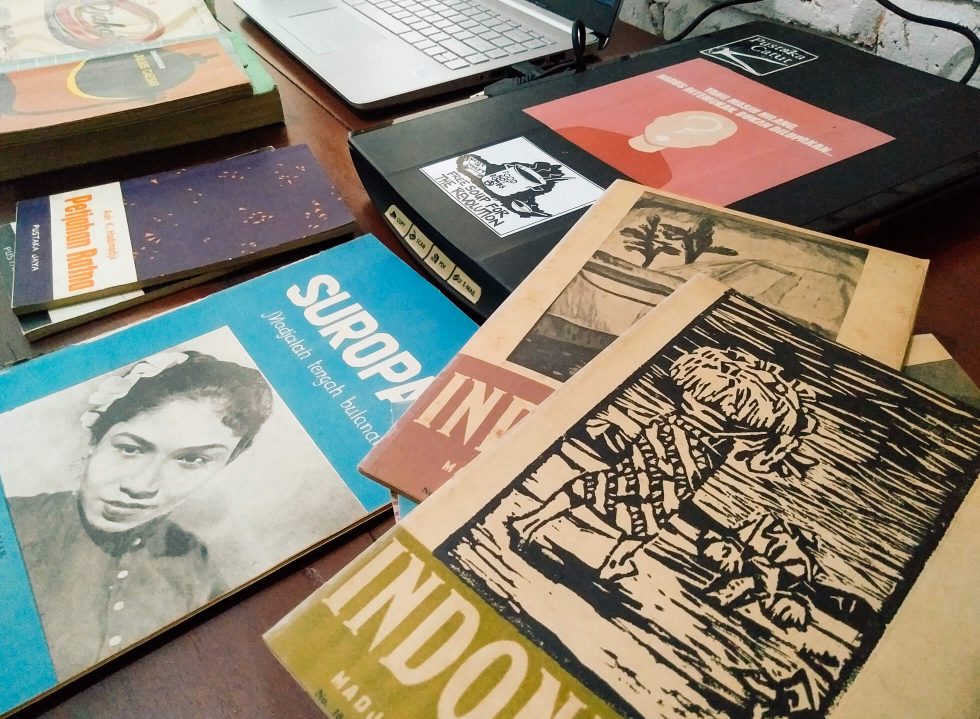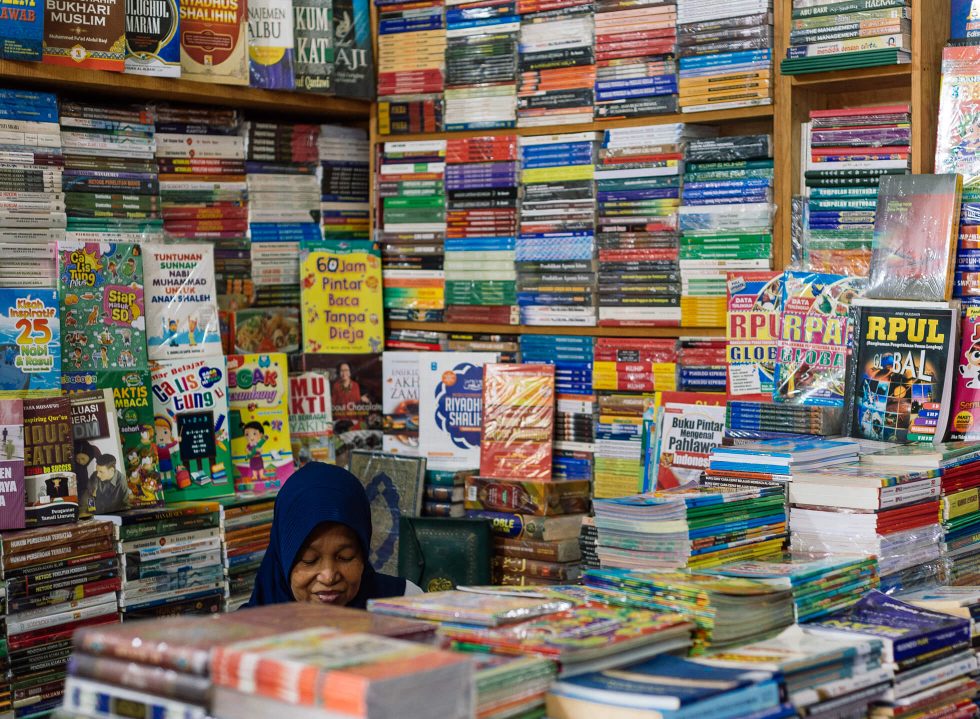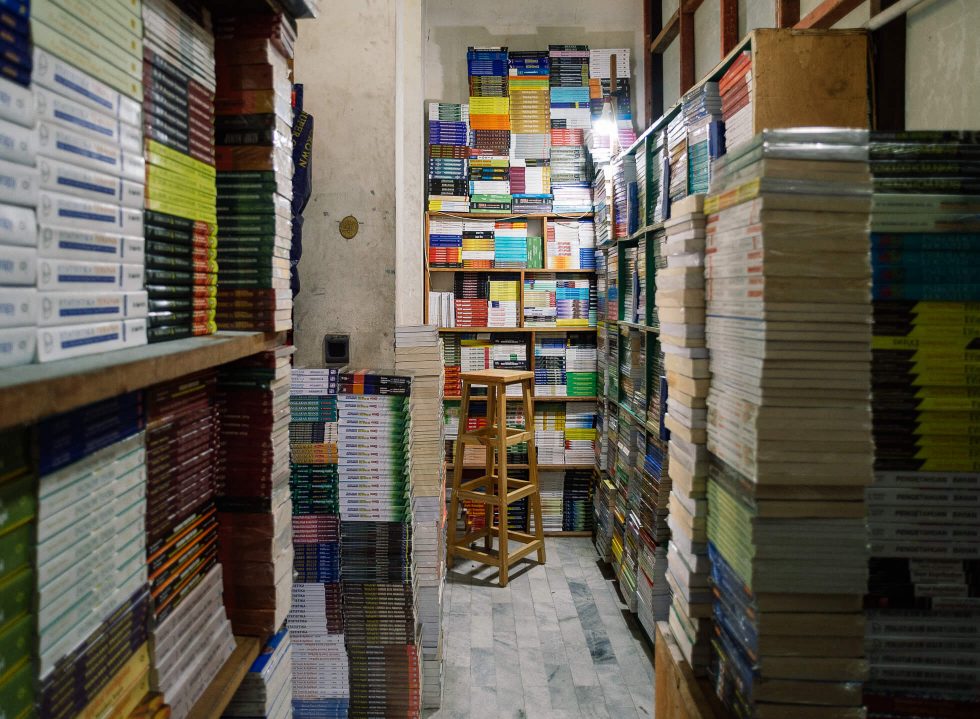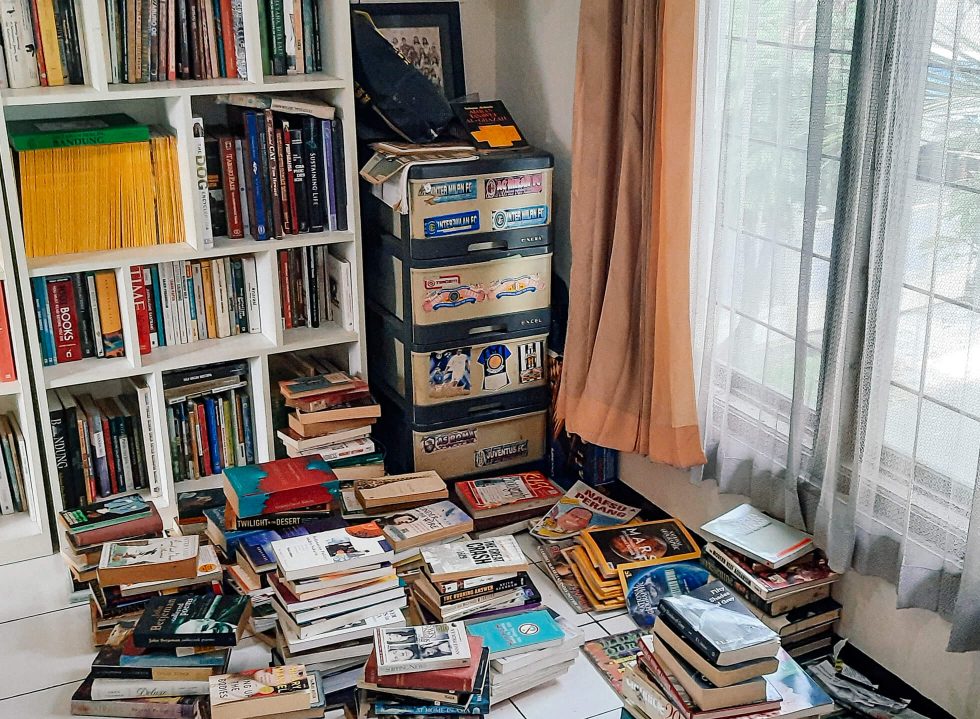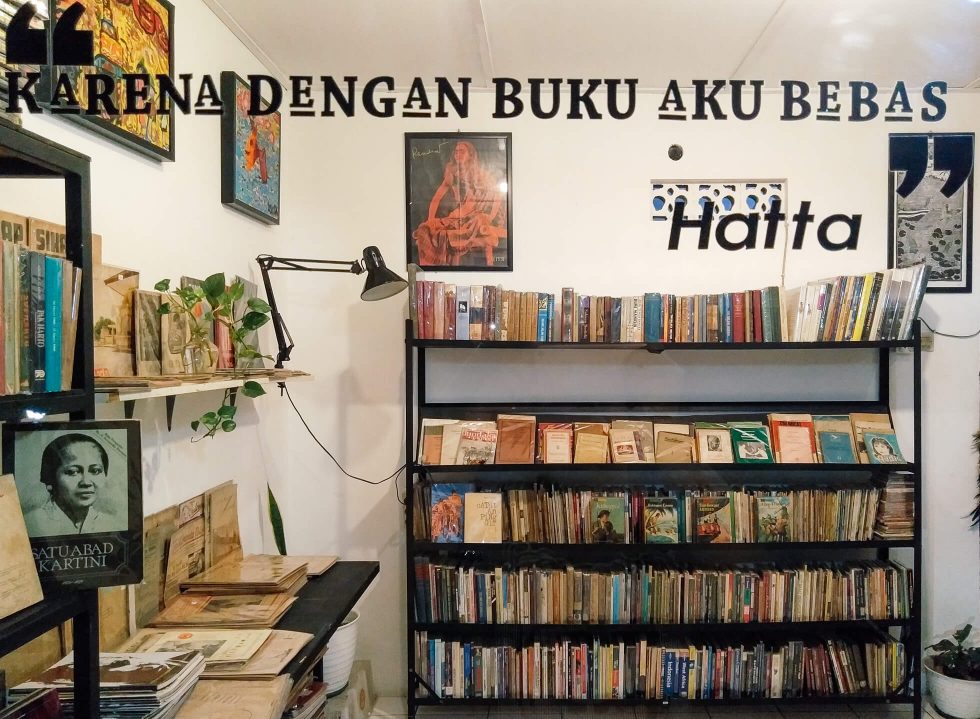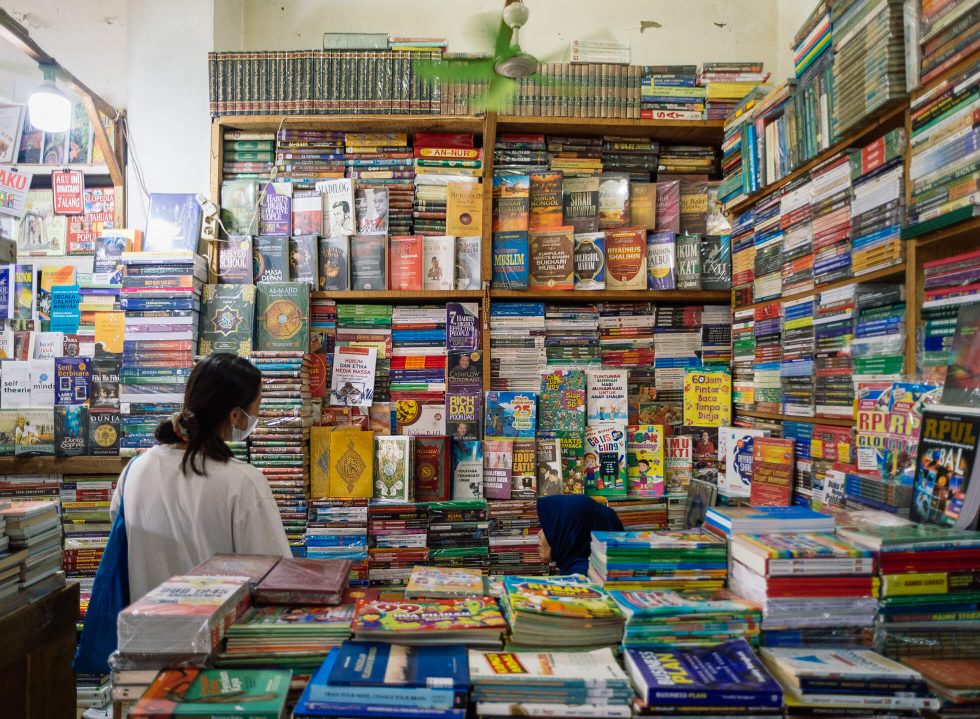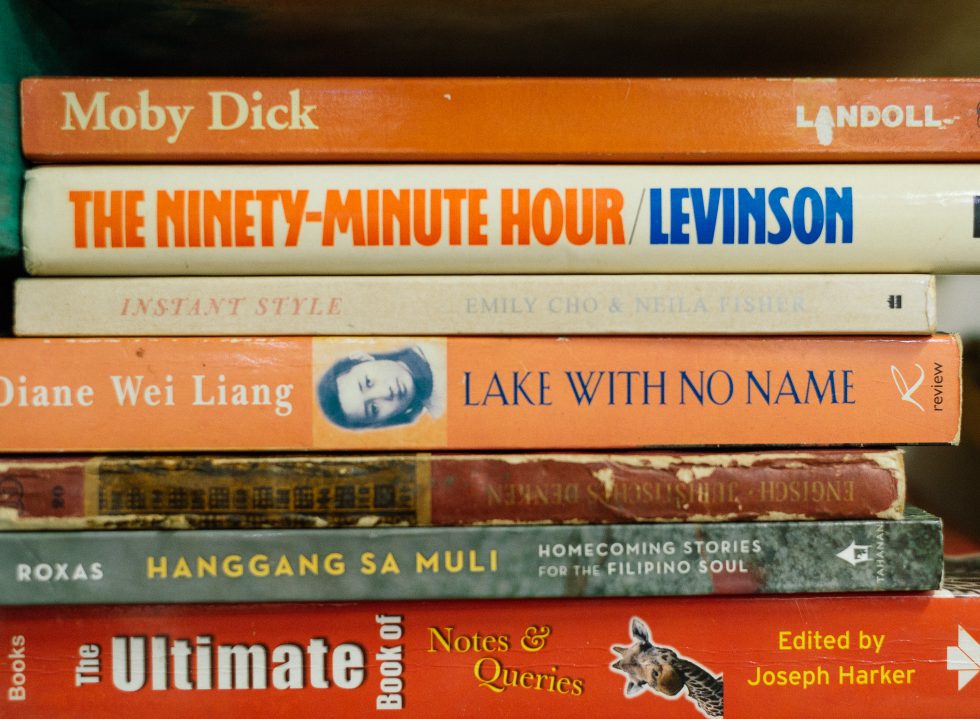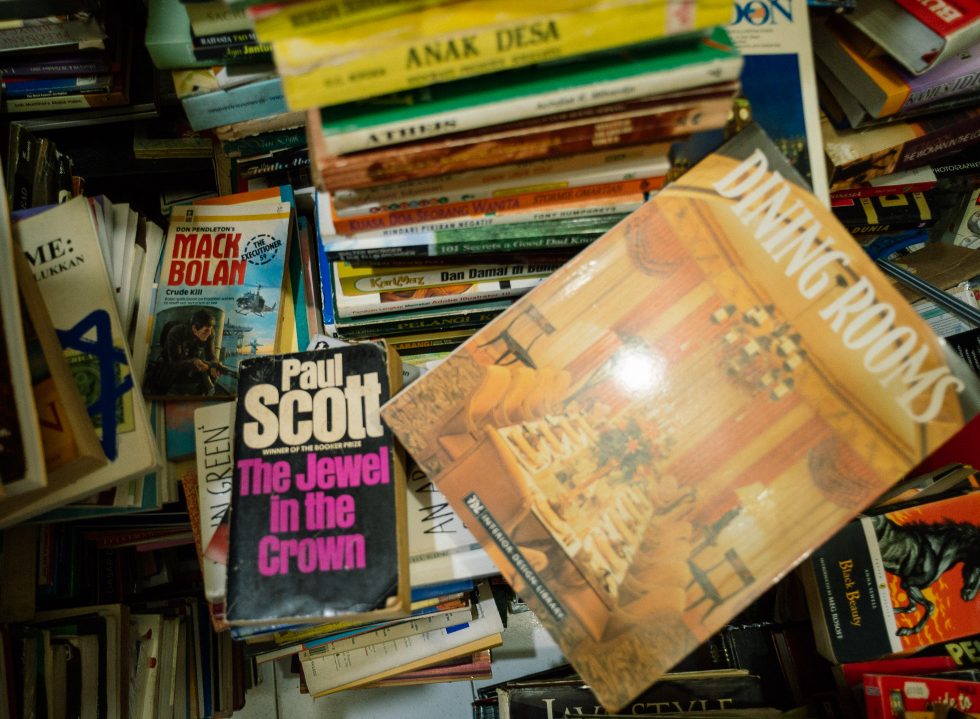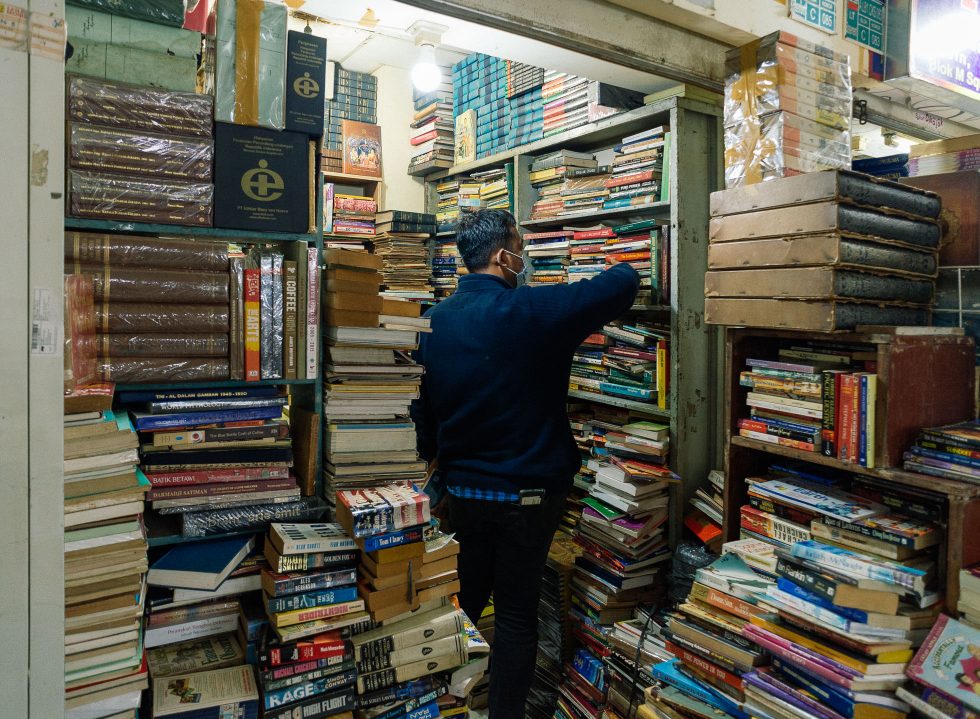With the speedy acceleration towards all things virtual and the consequences of the pandemic on brick-and-mortar shops, many bookstores—particularly those selling secondhand collections—find themselves on the crossroads of physical and virtual. Foot traffic plunged to almost nil during last year’s restrictions, resulting in a good portion of those stores having to jump online, quickly transferring their shelf-worn collections to familiar platforms like Tokopedia and Instagram.
Now that bookshop owners are trying new avenues to keep up with the times, a closer look into the situation reveals that online platforms may not be the big villain confronting traditional retail as they are painted to be. In hindsight, owners are surfing through the know-hows of operating online, as they explore a wider reach in terms of sales.
Can online really work in favour of traditional bookstores? Would the shift permanently replace the enduring appeal of traditional bookstores? We talk to independent bookshop owners about carrying out their businesses online and how they navigate through the differences and opportunities.
Testing out the waters
On the surface, the thought of purchasing books online seems to betray everything that traditional bookstores hope to keep alive: the intimacy of dialogue between shopkeeper and customers, friendly exchange of must-read titles, the thrill of discovering a rare or coveted volume, or perhaps the simple pleasure of being surrounded by a sea of books published long before one’s birth.
But for Kios Buku Situmorang in Stasiun Pasar Senen, the pandemic left them ‘no choice but to shift online.’ Unmoving since the ‘70s, the bookstore with the faded yellow storefront prides itself on the fact that most things there remained unchanged over the years, that is, everything except the method of purchase.
“We now sell on multiple online platforms, from Tokopedia, Shopee, to Bukalapak. To be honest, it’s a lot more hassle when you think of uploading all the stocks, shipping, dealing with customer service or complaints. Compared to a walk-in purchase, the workload seems to double! But it was the only way we could keep the store open,” the owner, Pak Situmorang himself confessed.
Reluctant at first, he admitted he wasn’t at all eager to jump on the prospect of navigating online waters, as he was quite doubtful he could keep up. But it came to a point where shifting online no longer seemed like a matter of supplement, it was a necessity. Now, he and his wife take turns manning the shop while the other weighs and packs up online orders.
But with anything new, the challenges aren’t scarce. For a start, “With secondhand, there are a few grey areas of customers not fully knowing the condition of the books before buying them. Even with detailed descriptions and photographs, sometimes the books are returned for not quite ‘meeting expectations’. But what can you do? it’s secondhand,” he chuckled.
Utilising social media
While some jumped ship online, others started that way. Part of the latter, Bandung-based Toko Buku Chepolita opened in early 2020 just in time as people are stuck at home, and have since been one of the go-to online shops for avid readers of philosophy and Indonesian literature.
The books displayed on the shop’s social media page are a combination of owner Rifki Afwakhoir’s hunts and private donations, with some from his own personal library. Every single day, he sorts through scores of unused books—whether discarded or passed down, these books are often in need of a new home, picked out and scanned through for potential value. And as a bookworm and collector himself, he doesn’t take lightly the ability to share the joy of reading, minus the exorbitant price tag, of course.
“What I love most about secondhand books is finding new titles that I otherwise wouldn’t have come across. Reading secondhand is also a gateway to enjoy books without being hindered by its price tag. Some books can seem intimidating that way, but it’s nice to see books becoming more approachable and affordable to a wider crowd,” he commented.
“It’s not really one against the other, it’s about combining the tools together and making it work for you.” – Joni Rais, founder of Lion Bookstore
Those who’ve purchased a book there or inquired about available stocks would know that he is generous in his replies and suggestions. Rifki, who runs the business himself from his family home, is quick to drop recommendations when a book is no longer available, and when a regular eyes a particular book, he keeps it reserved until payday at the end of each month.
On the flip side, Tokohitam Bookshop started its online operations in 2005 via mailing lists, before branching out to their physical store in Jogja a few years later in 2019. With a curation that includes rare editions of literature, cultural magazines, poetry, history and philosophy, the bookshop offers a tight edit of titles with covers and illustrations that on their own tell a story; ‘Majalah Kebudayaan Indonesia’ from the ‘50s, ‘Horison’ editions from the late ‘70s, and ‘Madjalah Industri: Dian’ amongst a few names.
Founder Dodit Sulaksono also saw a rise in online sales last year, which made up for almost 80 per cent of the store’s income. “The shift online created opportunities, for sure. In terms of distribution and reach, we were afforded the opportunity to ship books to areas we would never have reached before with just our offline shop.”
On the subject of customer interaction, Dodit shared, “I don’t believe that online platforms are absent of human interaction, rather, it all depends on how we use these means to our advantage.”
A sense of permanence
Similarly, Joni Rais, attested to how online sales have helped him through turbulent times. “I started to explore online platforms in 2016, but back then, I didn’t expect online sales to take off the way it does today.”
From curbside sales in Kwitang to stalls in Thamrin City, and now occupying a cubicle shop in Blok M Square, Joni has been running the Lion Bookstore since ‘88, more than half his life. Growing up in a long line of family publishers, he’s familiar with the ins and outs of the book trade and has observed the market demands evolve.
Asked about his observations throughout the years, Joni shared, “rather than competitors, we fill in the gaps for each other—there’s an underlying sense of synergy and loyalty amongst booksellers. Put it this way, one shop cannot possibly meet the demands of all readers, and that’s when the other ones step in. As a community, we stick together.”
And he believes that, irrespective of the means, the continuation of secondhand bookstores will live on, whether online, offline, or both. “It’s not really one against the other, it’s about combining the tools together and making it work for you,” he concluded.
